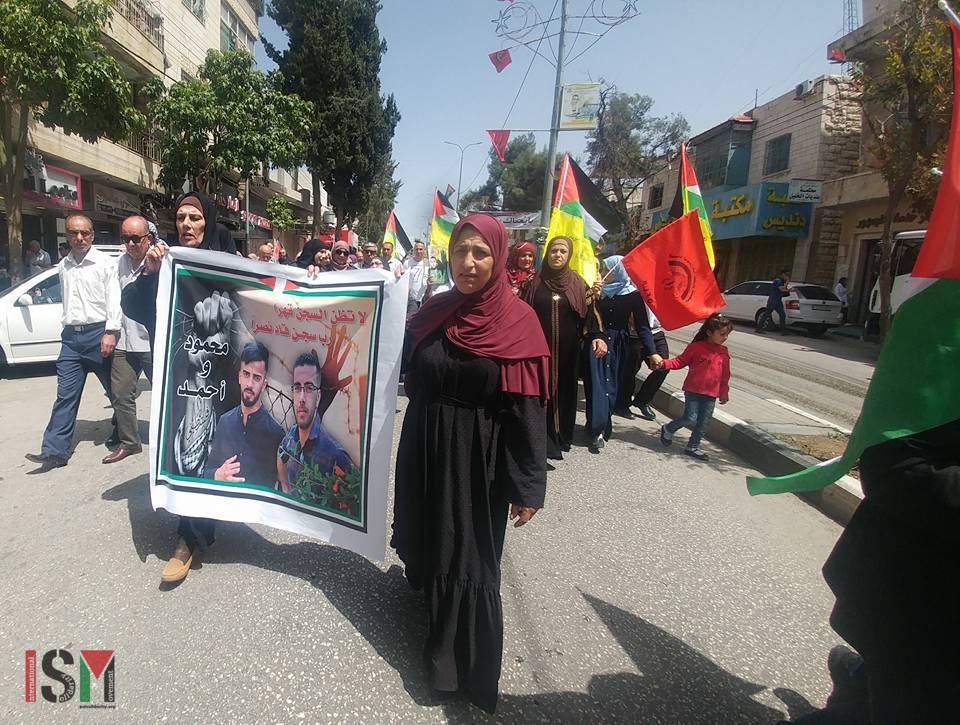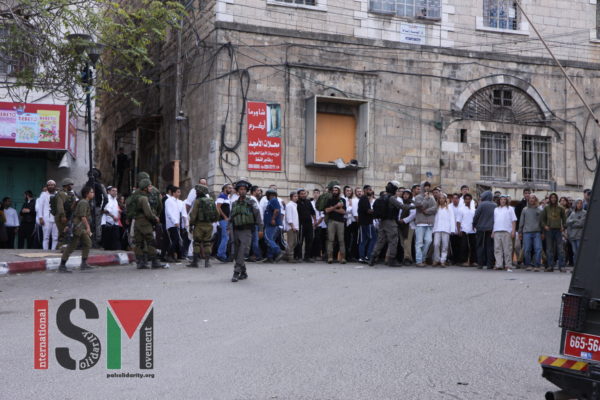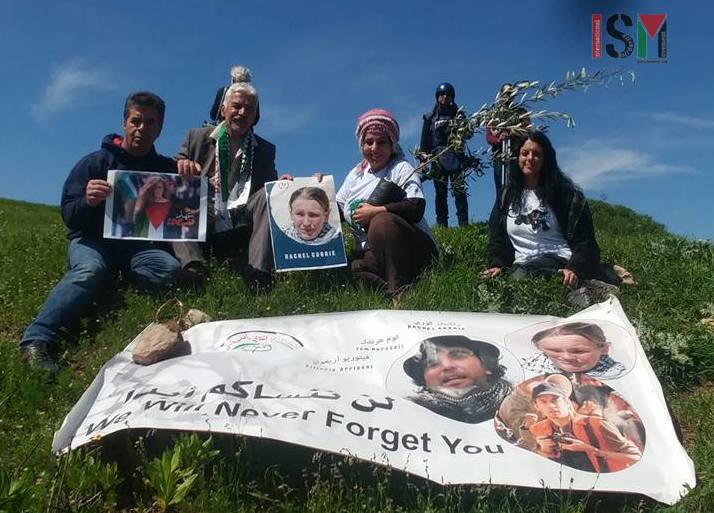Category: Reports
-
Severe restrictions for Palestinians, freedom of movement for settlers.
02/04/2018, International Solidarity Movement, Al Khalil/Hebron Today Israeli forces sealed off parts of three streets in Palestinian controlled H1 near Bab Azawiyeh ordering more than fifty Palestinian shops to close for ‘security reasons’. Israeli forces also closed the Al Ibrahimi Mosque and the checkpoint adjacent to it for two whole days. Pictured: Israeli forces seal…
-
Palestinian and International activists plant olive saplings on village land ordered for confiscation by Israel in Burin
17/03/2018| International Solidarity Movement Palestinians and International activists successfully planted dozens of olive saplings in the north of West Bank in the village of Burin near Nablus. Palestinians and Internationals together laid pictures of prominent activists in front of the planted saplings, some of these activists were killed by the Israeli army others are Palestinian…



